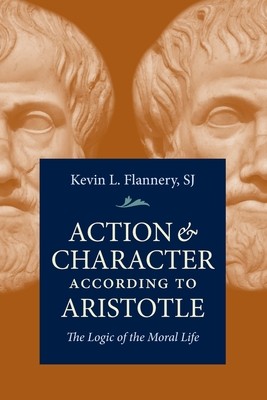
- We will send in 10–14 business days.
- Author: Sj Kevin L Flannery
- Publisher: Catholic University of America Press
- ISBN-10: 0813232201
- ISBN-13: 9780813232201
- Format: 15 x 22.4 x 2.8 cm, softcover
- Language: English
- SAVE -10% with code: EXTRA
Action and Character According to According to Aristotle (e-book) (used book) | bookbook.eu
Reviews
Description
Aristotle labors under no illusion that in the practical sphere humans operate according to the canons of logic. This does not prevent him, however, from bringing his own logical acumen to his study of human behavior. Aristotle, according to Fr. Flannery, depicts the way in which human acts of various sorts and in various combinations determine the logical structure of moral character. Some moral characters - or character types - manage to incorporate a high degree of practical consistency; others incorporate less, without forfeiting their basic orientation towards the good. Still others approach utter inconsistency or moral deprivation, although even these, in so far as they are responsible for their actions, retain a core element of rationality in their souls. According to Aristotle, moral character depends ultimately upon the structure of individual acts and upon how they fit together into a whole that is consistent - or not consistent - with justice and friendship.
This book will appeal to professional scholars and graduate students with an interest in Aristotle's ethics and in ethics generally. It proposes comprehensive interpretations of some difficult passages in Aristotle's two major ethical works ( the Nicomachean Ethics and the Eudemian Ethics ). It brings to bear upon the analysis of human behavior passages in Aristotle's logical works and in his Physics. It also draws connections among areas of particular interest to contemporary ethics: action theory, the analysis of practical reason, and virtue ethics.
EXTRA 10 % discount with code: EXTRA
The promotion ends in 20d.18:11:46
The discount code is valid when purchasing from 10 €. Discounts do not stack.
- Author: Sj Kevin L Flannery
- Publisher: Catholic University of America Press
- ISBN-10: 0813232201
- ISBN-13: 9780813232201
- Format: 15 x 22.4 x 2.8 cm, softcover
- Language: English English
Aristotle labors under no illusion that in the practical sphere humans operate according to the canons of logic. This does not prevent him, however, from bringing his own logical acumen to his study of human behavior. Aristotle, according to Fr. Flannery, depicts the way in which human acts of various sorts and in various combinations determine the logical structure of moral character. Some moral characters - or character types - manage to incorporate a high degree of practical consistency; others incorporate less, without forfeiting their basic orientation towards the good. Still others approach utter inconsistency or moral deprivation, although even these, in so far as they are responsible for their actions, retain a core element of rationality in their souls. According to Aristotle, moral character depends ultimately upon the structure of individual acts and upon how they fit together into a whole that is consistent - or not consistent - with justice and friendship.
This book will appeal to professional scholars and graduate students with an interest in Aristotle's ethics and in ethics generally. It proposes comprehensive interpretations of some difficult passages in Aristotle's two major ethical works ( the Nicomachean Ethics and the Eudemian Ethics ). It brings to bear upon the analysis of human behavior passages in Aristotle's logical works and in his Physics. It also draws connections among areas of particular interest to contemporary ethics: action theory, the analysis of practical reason, and virtue ethics.


Reviews